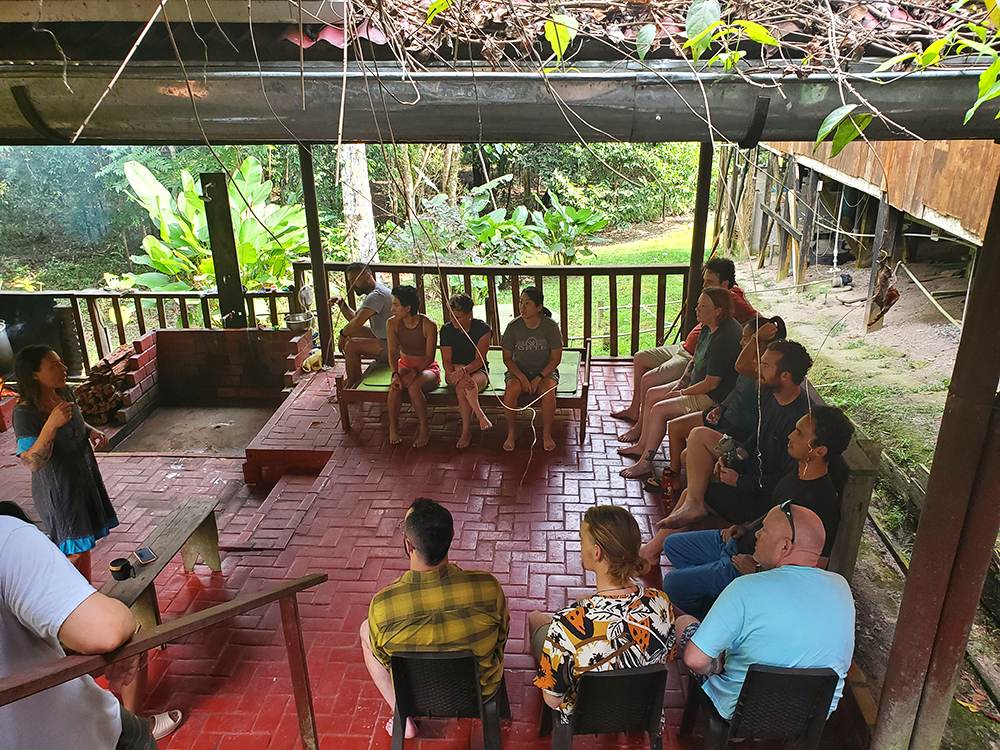Reciprocity
By “reciprocity” we refer to the practice of exchanging things with others for mutual benefit, especially privileges granted by one community or organisation to another. Reciprocity is a concept which takes many forms around the world.
In South America, it can be linked to the Quechua term ayni which roughly equates to the idea of balance and/or harmony, describing a continuous state of dynamic imbalance.
Committing to reciprocity requires an ongoing pledge to correct imbalances, and such a commitment can only take place with a system of relationships in place.
Nothing about us without us
As the psychedelics industry continues to mature, the market size is rapidly increasing with a growing number of substantial investments being made. Practices such as the ayahuasca sessions of the Amazon rainforest and the mushroom velada rituals of the Mazatecs are often reworked, either consciously or not, by psychedelic retreats and clinical trials working towards government approved practices. There is a growing awareness that the so-called ‘psychedelic renaissance’ is extracting Indigenous knowledge.
It is vital that the benefits that originate from Indigenous knowledge are shared with such communities and that Indigenous voices are upheld in any work that harbours their wisdom.
There are numerous factors to consider if seeking to advance this work in an ethical way, which respects traditional knowledge and genuine reciprocity.
Reciprocity is fundamentally interwoven into our work in 3 principal ways:
Engagement with Indigenous communities
Onaya Science developed the Indigenous Advisory Board as a platform where traditional healers advise on the scientific research they feel should be conducted. The board is comprised of Indigenous members, as well as a range of individuals who have dedicated their lives to learning about and translating Indigenous knowledge.
The team aims to uphold the Indigenous voice at each step of the research process, from the inception of our research questions and areas of study, to the development of the instruments and metrics we used to quantify change in the research, as well as how we analyse, interpret, and disseminate the findings.
Supporting Indigenous communities globally
Onaya Science supports the Chacruna Institute and the International Center for Ethnobotanical Education, Research, and Service (ICEERS) financially and through research activities - such as by contributing articles, providing lectures, and referencing and disseminating each other’s work in a range of capacities.
Supporting biodiversity and rainforest protection
Onaya Science also supports Regenerative Agroforestry Impact Network (RAIN) financially. RAIN works to restore forests via a network of local projects reforesting, regenerating and rewilding degraded land. They work in partnership with rural co-operatives and urban associations in Brazil and beyond, linking them with individuals, businesses, and schools abroad. RAIN supports locally run initiatives that change lives while supporting biodiversity, hydrological systems, and food security.






